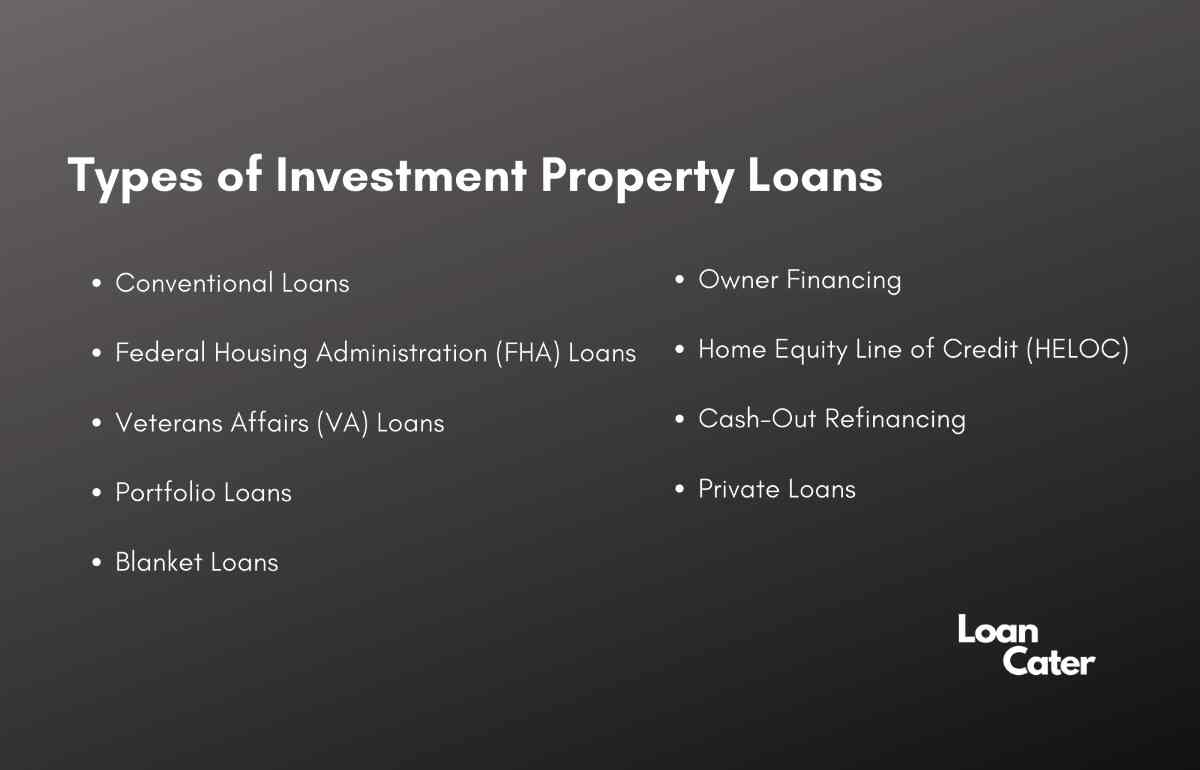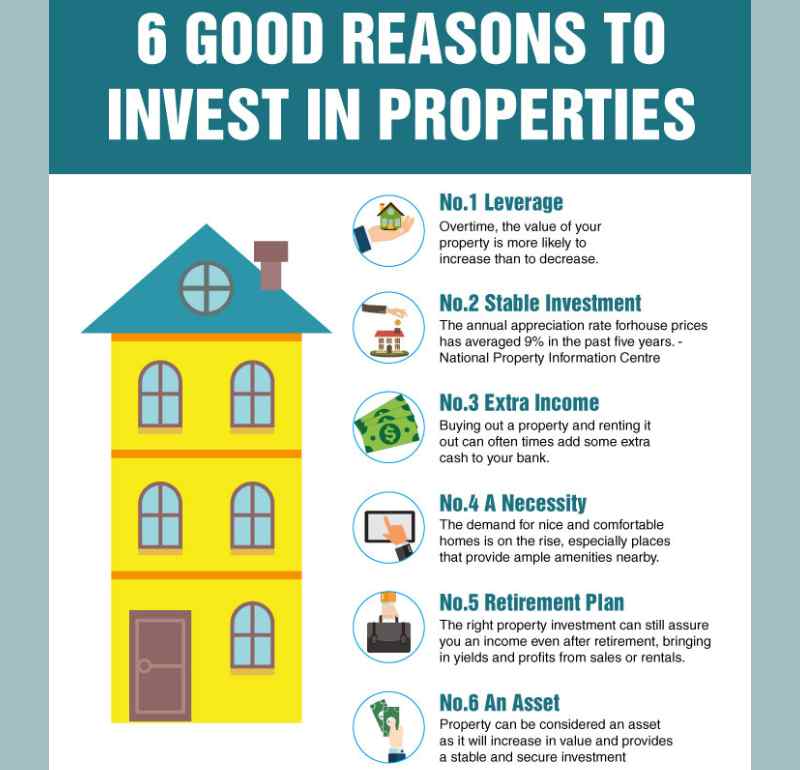Investment properties Loans have long been popular for individuals seeking to diversify their portfolios and generate passive income. Investment properties, whether residential or commercial, offer the potential for long-term appreciation and monthly rental income. However, venturing into the world of real estate investment often requires substantial capital, and this is where investment property loans come into play.
Understanding Investment Properties Loans
What is an Investment Property?
An investment property is a real estate asset purchased with the intent of generating a return on investment (ROI). Unlike primary residences, investment properties are not for personal use but are acquired as income-generating assets. They can take various forms, including residential homes, apartment complexes, office buildings, retail spaces, and more.
Types of Investment Properties
Investment properties are not one-size-fits-all. They can be categorized into three primary types:
- Residential Properties: These include single-family homes, condominiums, duplexes, and multi-unit apartment buildings.
- Commercial Properties: Commercial properties encompass office spaces, retail stores, warehouses, and industrial buildings.
- Mixed-Use Properties: These properties combine residential and commercial spaces in a single structure.
Advantages of Investing in Real Estate
Investing in real estate offers several advantages:
- Cash Flow: Rental income provides a steady stream of cash flow.
- Appreciation: Properties tend to appreciate over time, increasing their value.
- Tax Benefits: Investors can take advantage of tax deductions on mortgage interest, property taxes, and depreciation.
- Portfolio Diversification: Real estate can diversify an investment portfolio, reducing risk.
- Control: Investors have control over property management and decision-making.
Investment Property Loan Basics
An investment property loan, or a real estate investment loan, is a financial product designed specifically for purchasing or refinancing investment properties. These loans allow individuals to leverage their capital to acquire income-generating assets. Investment property loans come in various forms, each with its unique terms and requirements.
Types of Investment Property Loans

Here are the most common types of investment property loans:
- Traditional Mortgages: These loans, offered by banks and credit unions, are suitable for long-term investments. They typically require higher credit scores and larger down payments.
- Hard Money Loans: Hard money loans are short-term, high-interest loans often used for fix-and-flip properties. They have less stringent credit requirements but come with higher costs.
- Private Money Loans: Similar to hard money loans, personal money loans come from private investors or individuals. They may offer more flexible terms.
- FHA Loans: The Federal Housing Administration (FHA) offers loans with low down payment requirements, making them accessible to first-time real estate investors.
Eligibility Criteria for Investment Property Loans
Qualifying for an investment property loan involves meeting specific criteria:
Minimum Operational Period Requirement: Lenders may require borrowers to own and operate a primary residence for a certain period before financing investment properties.
Essential Documentation and Information: Applicants should prepare documents such as tax returns, bank statements, credit reports, and a comprehensive business plan if the property is for commercial use.
The Loan Application Process
Preparing for the Application: Before applying for a loan, investors should review their credit reports, and financial statements, and assess their ability to make a down payment.
Required Documentation: Lenders will request various documents to evaluate the borrower’s financial stability and the property’s potential income. These may include W-2 forms, tax returns, bank statements, and a business plan if applicable.
Selecting the Right Lender: Choosing the right lender is crucial. Consider factors like interest rates, terms, and the lender’s experience with investment property loans.
Submitting the Application: Once the borrower has gathered the necessary documents, they can submit the loan application to the chosen lender.
Loan Approval and Disbursement
The Underwriting Process: After receiving the application, the lender begins the underwriting process. This involves a thorough assessment of the borrower’s financial health and the property’s potential profitability.
Loan Approval Conditions: Lenders may attach conditions to the loan approval, such as property inspections, insurance requirements, or additional documentation.
Loan Disbursement: Once all conditions are met, the lender disburses the loan funds to complete the property purchase.
Initial Investment Property Acquisition: With the funds in hand, investors can acquire their chosen investment property.
Investment Property Financing Strategies
Financing a Fix-and-Flip Property: For short-term projects, like fix-and-flip properties, investors often opt for hard money loans due to their quick approval and funding.
Financing a Rental Property: Long-term rental properties benefit from traditional mortgages with lower interest rates.
Financing a Commercial Property: Commercial properties may require specialized loans tailored to the business’s needs, such as commercial real estate loans.
Creative Financing Options: Some investors explore innovative financing options, such as partnerships, seller financing, or crowdfunding.
Loan Repayment and Management
Loan Repayment Options: Investors must decide how to repay their loans, considering factors like interest rates and the property’s rental income.
Managing Multiple Investment Property Loans: Investors with multiple properties should develop a management strategy to handle multiple mortgages and rental income.
Handling Cash Flow: Effective cash flow management ensures that rental income covers expenses, including mortgage payments, property maintenance, and vacancies.
Tax Implications: Investors should consult with tax professionals to maximize tax deductions and benefits associated with investment properties.
Challenges and Risks of Investment Property Loans
Market Fluctuations: Real estate markets can experience fluctuations that impact property values and rental income.
Property Management Challenges: Managing investment properties can be time-consuming and may require hiring property management services.
Defaulting on Investment Property Loans: Failing to meet loan obligations can result in foreclosure and financial losses.
Regulatory and Legal Risks: Investors must navigate local, state, and federal regulations governing rental properties.
Maximizing Returns on Investment Properties

Property Renovation and Improvement: Renovating and improving properties can increase their value and rental income potential.
Finding High-Yield Properties: Identifying properties in high-demand rental areas can lead to better returns on investment.
Long-Term vs. Short-Term Investment Strategies: Investors must choose between long-term rental income and short-term property flipping, each with its own benefits and risks.
Building a Diverse Investment Portfolio: Diversifying across different property types and locations reduces risk.
Exit Strategies
Selling the Property: Investors can sell the property to realize capital gains.
Refinancing: Refinancing can provide access to additional funds or better loan terms.
1031 Exchange: This tax strategy allows investors to defer capital gains by reinvesting in a similar property.
Estate Planning: Investors may include investment properties in their estate planning.
Investment Property Loans Case Studies
Real-Life Success Stories: Explore real-world examples of investors who achieved financial success through investment property loans.
Lessons Learned from Experienced Investors: Gain insights from seasoned investors about their strategies and tips for success.
Conclusion
Investment property loans open doors to real estate investment opportunities, allowing investors to build wealth and achieve financial success in the dynamic world of real estate. Understanding the nuances of these loans and implementing effective strategies can lead to a lucrative and rewarding investment journey.
